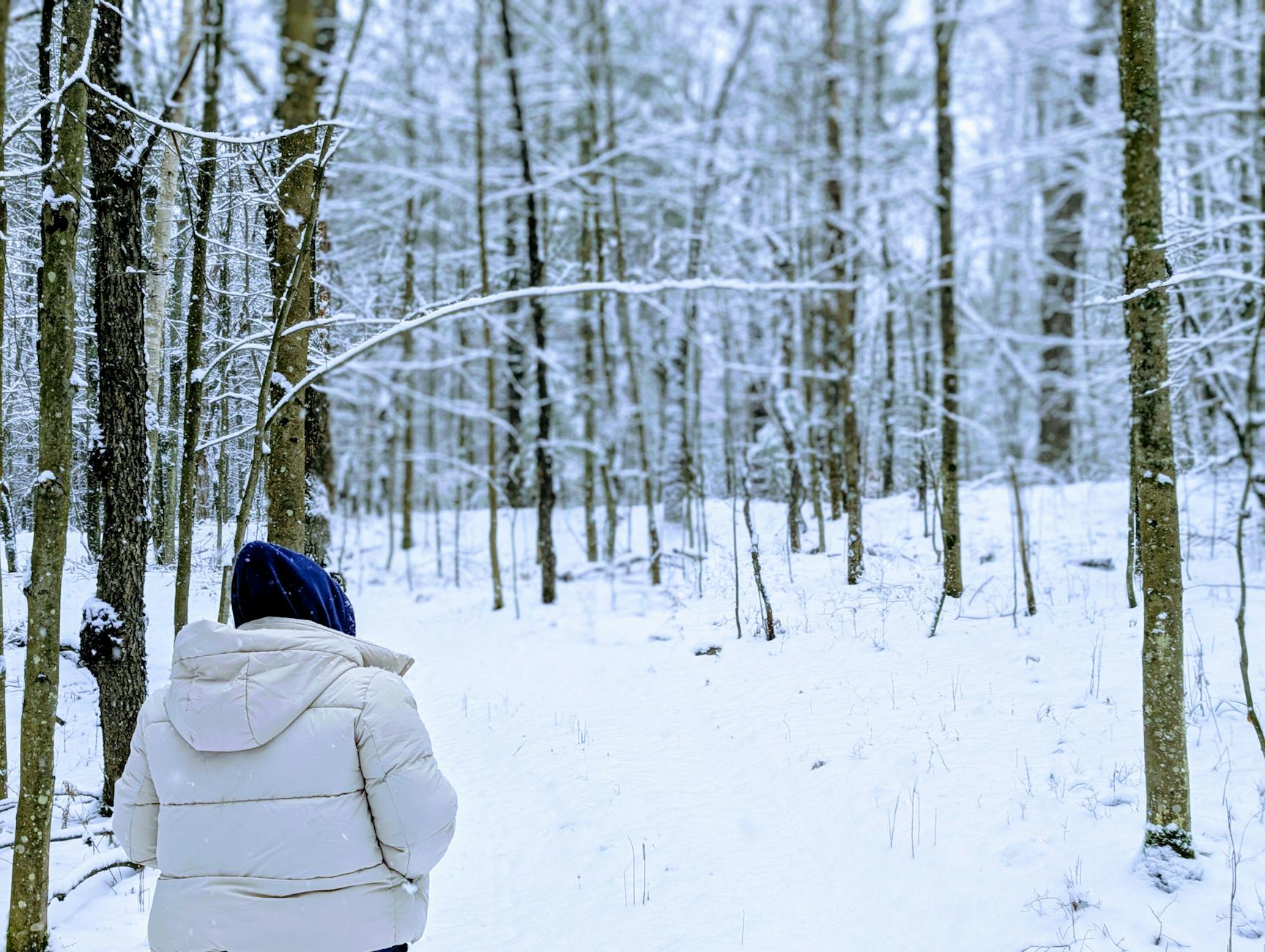By Brian Johnson
The 2024-25 Gwinn Christmas Bird Count was held on Saturday, January 4. This CBC has been conducted annually from 1980 to 1987, and for 21 years since being resurrected in 2002. Annual participation has varied from 2 to 10 field observers. This year, six birders, split among four parties, accrued nearly 67 miles (24.6 miles walking, 42 miles driving) over 10 hours around Gwinn, Little Lake, KI Sawyer, Princeton, and the backcountry to the south. Conditions were far from ideal, but not bad. The daily average temperature was our fourth coldest at 10° (the historical average being 18.5°), and the mean count period wind speed (17.5 mph) was the second highest for a Gwinn CBC. On the other hand, the snow depth was only about 3 inches (count day average = 7 inches), skies were nearly clear all day, and the Escanaba River was mostly open.
This dichotomy, combined with excellent coverage (and note keeping) by the team, resulted in 758 birds of 27 species. Historical totals range from 16 to 31 species, with an average of 24.2. Only four prior counts yielded more species than this year. Conversely, reduced bird activity produced an individual total considerably less than our long-term average of 831 birds. No new species were encountered this year, so our cumulative species total remains 53.
Here are this year’s Gwinn CBC totals, with notes of interest:
Ruffed Grouse – 12; a new record high total; 5 separate flocks
Wild Turkey – 25; a single flock; our second highest total; this species was first recorded in 2010
Rock Pigeon – 159; historical average = 114; found at several locations, but most (101) in Gwinn
Mourning Dove – 45; 3 separate flocks (largest was 32 birds); historical average = 28
Herring Gull – 1; flyover seen by BM and SD; second CBC record
Bald Eagle – 4; all flying birds; this ties the previous record Gwinn total
Red-bellied Woodpecker – 1; this species has been fairly regular since its first record in 2010
Downy Woodpecker – 7; scarce this year (historical average = 11.6), possibly due to count day weather
Hairy Woodpecker – 9; historical average = 8.2; this was the seventh year (and the fourth in a row) since 2002 in which this species has outnumbered Downy Woodpecker
Pileated Woodpecker – 3; historical average = 2.7
Northern Shrike – 1; perched bird observed by BJ; third modern CBC record
Blue Jay – 32; historical average = 34; 10 separate flocks
American Crow – 30; historical average = 35; 15 separate flocks
Common Raven – 19; historical average = 17; our highest total since 2011
Black-capped Chickadee – 224; historical average = 180; 69 separate flocks, with a median flock size of only 2 birds, but two flocks numbered over 10 individuals
Golden-crowned Kinglet – 7; widely scattered; historical average = 7.1, and missed only one year
Red-breasted Nuthatch – 4; definitely hard to find, this was our third lowest CBC total (historical average = 31)
White-breasted Nuthatch – 21; common and widespread this year (historical average = 14); the ratio of White-breasted Nuthatch over Red-breasted was the highest we have ever recorded
Brown Creeper – 1; rarely numerous (historical average = 3.5), and occasionally missed; the lone bird this year was discovered on roost during a nocturnal owl prowl
European Starling – 37; historical average = 65; 6 found at KI Sawyer, 31 in Gwinn
American Robin – 1; found by CE; our second CBC record
Purple Finch – 1; a lone adult male flying to a feeder; this species has occurred on 9 of the last 21 CBC’s, with no clear trend
(Common) Redpoll – 26; flocks of 6, 3, 8, and 17; this species has occurred on 13 of the last 21 CBC’s
American Goldfinch – 26; 9 separate flocks; numbers of this species have been highly variable over the past two decades, with CBC totals ranging from 0 to 505 (historical average = 84)
Snow Bunting – 58; again found at KI Sawyer, and our highest total since 2017
American Tree Sparrow – 1; seen by CE; this species has been recorded on 5 of the last 21 CBC’s
Dark-eyed Junco – 3; together in conifers in Gwinn; this species has been recorded on 15 of the last 21 CBC’s
Of the species missed this year, only three have occurred on more than half of the 21 Gwinn CBC’s from the modern period. All were irruptive finches: Evening Grosbeak (11 years), Pine Grosbeak (11 years), and Pine Siskin (11 years). A 90-minute (3.5 mile) evening hike failed to produce any owls, but a roosting Brown Creeper provided the final new species for the day.
Counters this year were Sheree Davis, Cory Elowe, Brian Johnson, Brian Murphy, Norman Opolsky, and Pamela Opolsky. Many thanks.
Brian Johnson


